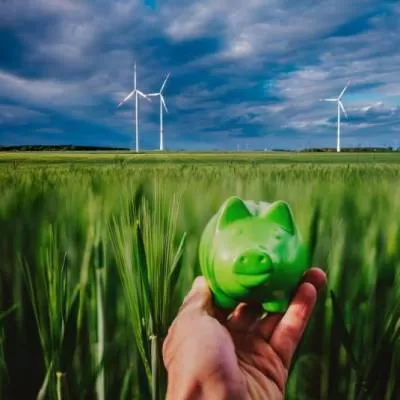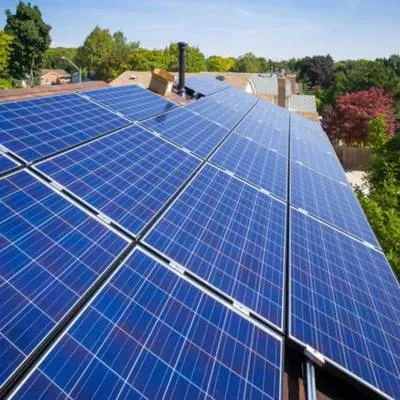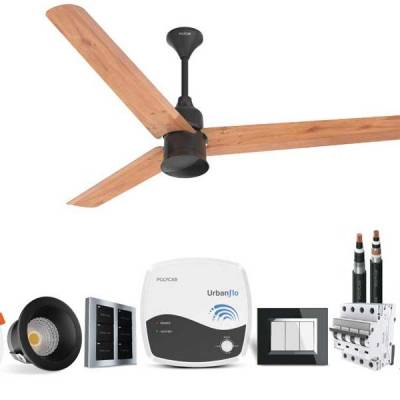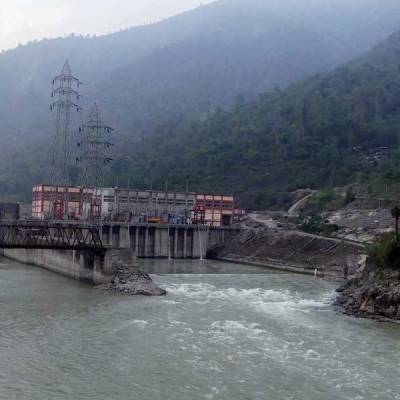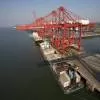- Home
- Infrastructure Energy
- POWER & RENEWABLE ENERGY
- Indian and Brazilian markets are still quite unexplored by each other.
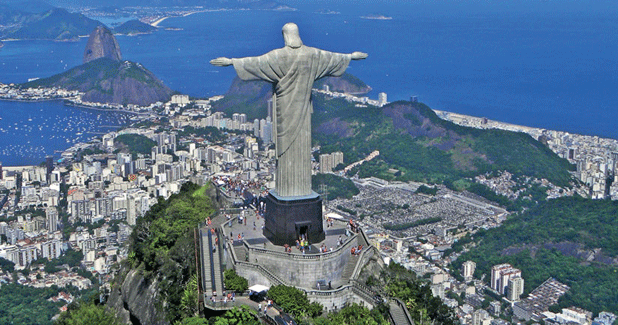
Indian and Brazilian markets are still quite unexplored by each other.
India and Brazil have enjoyed a long history of partnership and cooperation with a relationship that has been extensive and comprehensive. In fact, both countries have maintained resident embassies in each other´s capitals since shortly after Indian independence. And the political relationship has acquired a dimension of strategic partnership in the past decade, mostly under the leadership of former President Lula da Silva; this has continued to strengthen under President Dilma Roussef, who has just been re-elected for a second term.
Tasked with deepening trade ties between the two nations is Durval Luiz de Oliveira Pereira, First Secretary and Head, Trade Promotion Sector, Embassy of Brazil in New Delhi. This is his third overseas posting, after stints in Vancouver, Canada and Lisbon, Portugal. The diplomat, who began his duties last August, shares his perspective on the bilateral relationship and opportunities for trade with CW. Excerpts:
India-Brazil bilateral relations are in a state of upswing. What emphasis does the country place on India as a trade partner?
Brazil and India have built partnerships such as the IBSA (India, Brazil, South Africa) Forum; BRICS (Brazil, Russia, India, China and South Africa); BASIC; G-20 and G-4. Both countries have also traditionally cooperated in multilateral fora such as the UN, WTO and UNESCO. Brazil is also one of the most important trading partners for India in the entire Latin American and Caribbean region. Bilateral trade increased substantially over the last decade and crossed the $10 billion mark in 2012. To retain this upward momentum, it is necessary that both countries work towards diversifying trade and increasing the value addition of goods. There is significant potential in the bilateral trade yet to be developed, given that the Indian and Brazilian markets are still quite unexplored by each other. It is important to foster closer business ties between the two countries.
While there have been two-way investments between India and Brazil, which sectors do you find most attractive in India?
The engagement between India and Brazil is both increasing and strengthening buoyed by the political will of both countries. The government of India is strongly business-oriented and trying to foster initiatives to help attract investments in the manufacture of products in the country. Brazilian investment in India is estimated at $1 billion, while total estimated investments by Indian companies in Brazil reach close to $5 billion.
New and renewable energies; aircrafts, airports and related facilities; automobiles; biofuels; and agriculture are sectors set to grow in the bilateral trade relationship.
Which Brazilian companies have established their footprint in India? Share success stories of companies growing and doing profitable business in India.
There are two Brazilian companies from the building, construction and infrastructure sector that are established in India and doing important business here: Gerdau and WEG. Gerdau is a leading producer of long steel in the Americas and one of the largest suppliers of special steel in the world.
The company´s Indian steel plant is situated in Tadipatri, Andhra Pradesh, and has an installed capacity of 300,000 tonne of special steel (long products) per year, focused on the automotive, defence, railways and related industries. The second company, WEG, is an important global solutions provider of electric machines and automation for industry and energy systems. The company works with induction motors, synchronous motors, turbo generators and hydro generators. It offers solutions for segments including oil and gas, marine, mining, cement and aggregate, steel, infrastructure, energy, and others.
What is the expertise India offers to Brazil in the building, construction and infrastructure space? Can you name a few Indian firms operating in Brazil?
India is renowned for its expertise in different sectors, such as IT and ITES, construction and energy solutions, which are areas of cooperation between India and Brazil. In 2013, Kalpataru Power Transmission Ltd showed great interest in investing in Brazil and established a subsidiary company in the country, the 100-per-cent Indian-owned Kalpataru Indústria e Comércio Ltda. Also, UltraTech Cement Ltd, part of the Aditya Birla Group, participated of the selling of assets from Lafarge SA, the biggest cement company in Brazil. Further, KEC International Ltd, a company working with energy transmission lines, as well as telecommunications, the road sector, water management and cable production, managed to obtain various contracts in Brazil related to the construction of energy towers and transmission lines. And finally, Larsen & Toubro Ltd, which works with construction and engineering, among other areas, has an office in Rio de Janeiro. In the past, the company has obtained important contracts in Brazil, including the manufacture and supply of 10 hydro-treating reactors and 12 coke drums for Petrobras, worth $160 million, in 2008. This has been the largest order the company has received from South America to date.
Introduce us to some important projects in the building, construction and infrastructure space that both countries are currently collaborating on or eyeing?
Areas open for investment in Brazil include highway concessions, railway concessions, ports, airport concessions and high-speed trains. The areas listed on the Logistics Investments Program (Programa de Investimentos em Logfsitca) website are open for FDI and India is warmly invited to invest in them.
The Indian government has set a target of developing 100 smart cities. How can Brazil contribute to the establishment of smart cities in India? Please talk to us about Brazil´s landmark smart city.
In countries experiencing rapid urbanisation, the idea of turning urban living more friendly and intelligent is of utmost importance. Brazil and India are countries facing this challenge. The city of Curitiba, capital of the state of Paranß, is the first Brazilian state capital that could be considered a smart city. It is intelligent and innovative in an array of aspects, besides being ranked the Brazilian state capital with the best living standards.
Its public transportation system is rapid, efficient and used by roughly 70 per cent of the population. The city´s economic growth strategy is balanced and diversified, and its urban innovations along with the way the environment is taken care of have helped make the city famous worldwide.
Another city with smart projects underway is Rio de Janeiro. A few years ago, the government of the city began some projects to help transform it into an intelligent and smart city. It is famous for its control centre, which congregates operations from different agencies that handle traffic patterns and weather forecasts, among others, and works as a rapid response coordination hub for the city. This centre was implemented about four years ago and has become an innovative tool to help manage the city.
What are the challenges in our bilateral economic relations? And what are the investment opportunities for Brazilian companies in India and Indian firms in Brazil?
The biggest challenge in the bilateral economic relationship is to bridge the awareness gap between both countries. Despite similarities between the two - both large democracies facing social imbalances and growth challenges - trade and economic relations are yet to achieve their full potential. One could say that distance is to be blamed, or communication issues linked to the different languages each country speaks. Instead of focusing on the problems, it is of utmost importance to try to foster the creation of bonds strong enough to encourage solid business ventures. Investment opportunities in different areas exist, and can or should be fostered by both governments and private sectors. India is in the process of changing its regulations to FDI, which may generate sound opportunities for Brazilian investments in India, both in established and new areas of investment, such as the defence sector, railways and logistic, agriculture and food processing, mining, infrastructure, energy and manufacturing.
Vital stats
- Bilateral trade crossed the $10 billion mark in 2012.
- Brazilian investment in India is estimated at $1 billion.
- Total estimated investments by Indian companies in Brazil reach close to $5 billion.
- New and renewable energies and airports and related facilities are among the sectors set to grow in the bilateral trade relationship.
- Durval Luiz de Oliveira Pereira
- Embassy
- Brazil
- New Delhi
- Lula da Silva
- Dilma Roussef
- IBSA
- BRICS
- WTO
- UNESCO
- Renewable Energies
- Aircrafts
- Airports
- Automobile
- Biofuels
- Agriculture
- WEG
- Infrastructure
- IT
- ITES
- Kalpataru Power Transmission Ltd
- Power
- Transmission
- Kalpataru Indústria e Comércio Ltda. Also
- UltraTech Cement Ltd
- KEC International Ltd
- Larsen & Toubro Ltd
- Rio de Jane
- Durval Luiz de Oliveira Pereira, First Secretary and Head, Promotion Sector, Embassy of Brazil, New Delhi India and Brazil have enjoyed a long history of partnership and cooperation with a relationship that has been extensive and comprehensive. In fact, both countries have maintained resident embassies in each other´s capitals since shortly after Indian independence. And the political relationship has acquired a dimension of strategic partnership in the past decade, mostly under the leadership of former President Lula da Silva; this has continued to strengthen under President Dilma Roussef, who has just been re-elected for a second term. Tasked with deepening trade ties between the two nations is Durval Luiz de Oliveira Pereira, First Secretary and Head, Trade Promotion Sector, Embassy of Brazil in New Delhi. This is his third overseas posting, after stints in Vancouver, Canada and Lisbon, Portugal. The diplomat, who began his duties last August, shares his perspective on the bilateral relationship and opportunities for trade with CW. Excerpts: India-Brazil bilateral relations are in a state of upswing. What emphasis does the country place on India as a trade partner? Brazil and India have built partnerships such as the IBSA (India, Brazil, South Africa) Forum; BRICS (Brazil, Russia, India, China and South Africa); BASIC; G-20 and G-4. Both countries have also traditionally cooperated in multilateral fora such as the UN, WTO and UNESCO. Brazil is also one of the most important trading partners for India in the entire Latin American and Caribbean region. Bilateral trade increased substantially over the last decade and crossed the $10 billion mark in 2012. To retain this upward momentum, it is necessary that both countries work towards diversifying trade and increasing the value addition of goods. There is significant potential in the bilateral trade yet to be developed, given that the Indian and Brazilian markets are still quite unexplored by each other. It is important to foster closer business ties between the two countries. While there have been two-way investments between India and Brazil, which sectors do you find most attractive in India? The engagement between India and Brazil is both increasing and strengthening buoyed by the political will of both countries. The government of India is strongly business-oriented and trying to foster initiatives to help attract investments in the manufacture of products in the country. Brazilian investment in India is estimated at $1 billion, while total estimated investments by Indian companies in Brazil reach close to $5 billion. New and renewable energies; aircrafts, airports and related facilities; automobiles; biofuels; and agriculture are sectors set to grow in the bilateral trade relationship. Which Brazilian companies have established their footprint in India? Share success stories of companies growing and doing profitable business in India. There are two Brazilian companies from the building, construction and infrastructure sector that are established in India and doing important business here: Gerdau and WEG. Gerdau is a leading producer of long steel in the Americas and one of the largest suppliers of special steel in the world. The company´s Indian steel plant is situated in Tadipatri, Andhra Pradesh, and has an installed capacity of 300,000 tonne of special steel (long products) per year, focused on the automotive, defence, railways and related industries. The second company, WEG, is an important global solutions provider of electric machines and automation for industry and energy systems. The company works with induction motors, synchronous motors, turbo generators and hydro generators. It offers solutions for segments including oil and gas, marine, mining, cement and aggregate, steel, infrastructure, energy, and others. What is the expertise India offers to Brazil in the building, construction and infrastructure space? Can you name a few Indian firms operating in Brazil? India is renowned for its expertise in different sectors, such as IT and ITES, construction and energy solutions, which are areas of cooperation between India and Brazil. In 2013, Kalpataru Power Transmission Ltd showed great interest in investing in Brazil and established a subsidiary company in the country, the 100-per-cent Indian-owned Kalpataru Indústria e Comércio Ltda. Also, UltraTech Cement Ltd, part of the Aditya Birla Group, participated of the selling of assets from Lafarge SA, the biggest cement company in Brazil. Further, KEC International Ltd, a company working with energy transmission lines, as well as telecommunications, the road sector, water management and cable production, managed to obtain various contracts in Brazil related to the construction of energy towers and transmission lines. And finally, Larsen & Toubro Ltd, which works with construction and engineering, among other areas, has an office in Rio de Janeiro. In the past, the company has obtained important contracts in Brazil, including the manufacture and supply of 10 hydro-treating reactors and 12 coke drums for Petrobras, worth $160 million, in 2008. This has been the largest order the company has received from South America to date. Introduce us to some important projects in the building, construction and infrastructure space that both countries are currently collaborating on or eyeing? Areas open for investment in Brazil include highway concessions, railway concessions, ports, airport concessions and high-speed trains. The areas listed on the Logistics Investments Program (Programa de Investimentos em Logfsitca) website are open for FDI and India is warmly invited to invest in them. The Indian government has set a target of developing 100 smart cities. How can Brazil contribute to the establishment of smart cities in India? Please talk to us about Brazil´s landmark smart city. In countries experiencing rapid urbanisation, the idea of turning urban living more friendly and intelligent is of utmost importance. Brazil and India are countries facing this challenge. The city of Curitiba, capital of the state of Paranß, is the first Brazilian state capital that could be considered a smart city. It is intelligent and innovative in an array of aspects, besides being ranked the Brazilian state capital with the best living standards. Its public transportation system is rapid, efficient and used by roughly 70 per cent of the population. The city´s economic growth strategy is balanced and diversified, and its urban innovations along with the way the environment is taken care of have helped make the city famous worldwide. Another city with smart projects underway is Rio de Janeiro. A few years ago, the government of the city began some projects to help transform it into an intelligent and smart city. It is famous for its control centre, which congregates operations from different agencies that handle traffic patterns and weather forecasts, among others, and works as a rapid response coordination hub for the city. This centre was implemented about four years ago and has become an innovative tool to help manage the city. What are the challenges in our bilateral economic relations? And what are the investment opportunities for Brazilian companies in India and Indian firms in Brazil? The biggest challenge in the bilateral economic relationship is to bridge the awareness gap between both countries. Despite similarities between the two - both large democracies facing social imbalances and growth challenges - trade and economic relations are yet to achieve their full potential. One could say that distance is to be blamed, or communication issues linked to the different languages each country speaks. Instead of focusing on the problems, it is of utmost importance to try to foster the creation of bonds strong enough to encourage solid business ventures. Investment opportunities in different areas exist, and can or should be fostered by both governments and private sectors. India is in the process of changing its regulations to FDI, which may generate sound opportunities for Brazilian investments in India, both in established and new areas of investment, such as the defence sector, railways and logistic, agriculture and food processing, mining, infrastructure, energy and manufacturing. Vital stats Bilateral trade crossed the $10 billion mark in 2012. Brazilian investment in India is estimated at $1 billion. Total estimated investments by Indian companies in Brazil reach close to $5 billion. New and renewable energies and airports and related facilities are among the sectors set to grow in the bilateral trade relationship.


